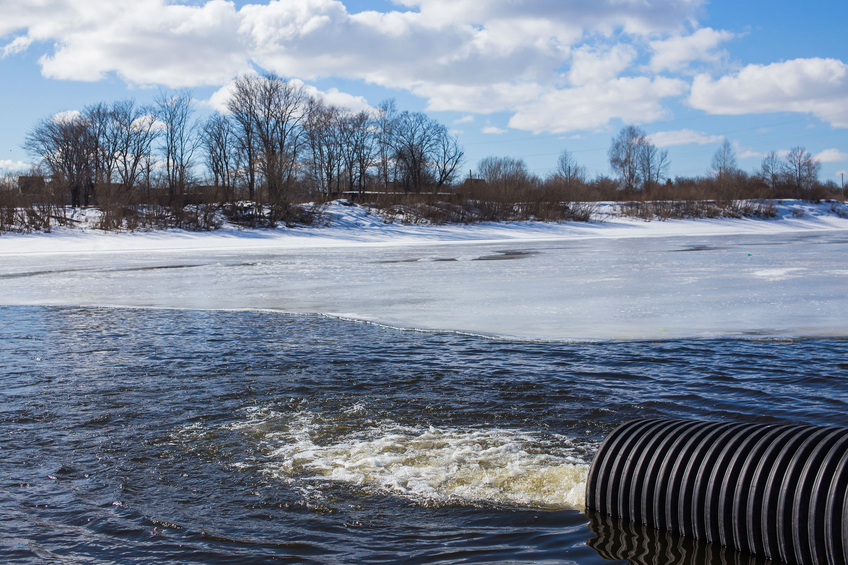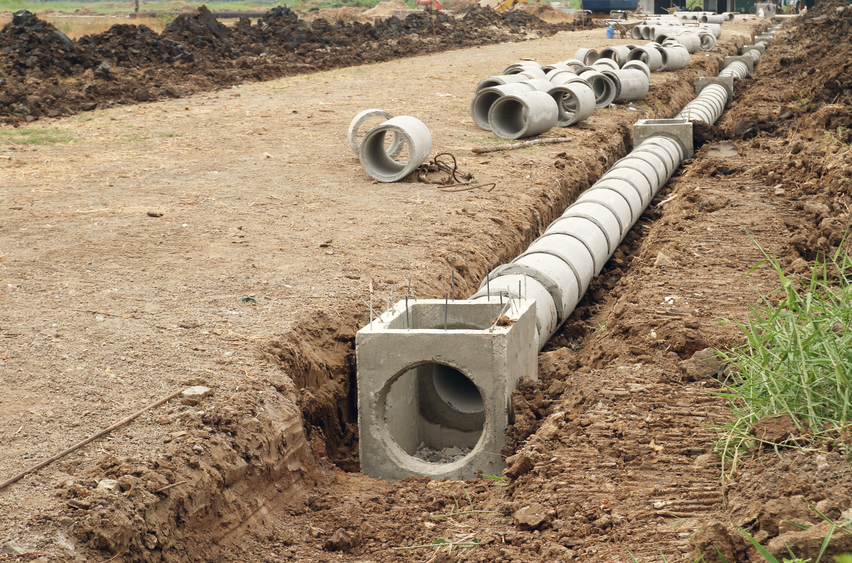Ontario Civil 15 PDH Discount Package
Courses in this Package
Basics of Site Work (C03-046)
Developing Your Stormwater Pollution Prevention Plan (SWPPP) (C04-057)
An Introduction to Stormwater Drainage and Site Development (C03-042)
Integrating Green Infrastructure into Local Hazard Mitigation Plans (C02-082)
An Introduction to Survey Methods and Techniques (A03-009)

This online engineering PDH course describes the basic operations required to prepare a construction site before foundations can be poured and walls erected. Site surveys, including construction surveys and the use of appropriate surveying instruments, are discussed first. Then earthwork operations such as pioneering, grubbing, stripping, and drainage are introduced. Soils testing is discussed. Finally the permitting process, including utility interruption requests, excavation requests, and road closure requests is described.
Site work involves the preparation of the construction site before pouring foundations or erecting walls. It begins with site surveys using specialized surveying equipment and methods. This is followed by obtaining building permits for various aspects of the project, working closely with local authorities. Once that work is underway, site and building layout begins. Leveling and grading are key components in building sound structures, taking into account the types of existing soils to determine whether soil stabilization is required before construction begins.
This 3 PDH online course is intended for civil and environmental engineers, land planners, and others whose seek a basic, introductory knowledge of the principles of site development.
This P.Eng. continuing education course is intended to provide you with the following specific knowledge and skills:
- Understanding the types of and needs for permits
- Learning how to classify soils based on soils tests
- Learning how to apply the principles of differential leveling
- Knowing how to lay out building lines to determine the boundaries of the excavations
In this professional engineering CEU course, you need to review Chapter 5, “Site Work” of the U.S. Navy Engineering Nonresident Training Course, Builder Basic, NAVEDTRA 14043A, published October, 2010.
Once you complete your course review, you need to take a multiple-choice quiz consisting of twenty (20) questions to earn 3 PDH credits. The quiz will be based on the entire NAVEDTRA Publication.
Upon successful completion of the quiz, print your Certificate of Completion instantly. (Note: if you are paying by check or money order, you will be able to print it after we receive your payment.) For your convenience, we will also email it to you. Please note that you can log in to your account at any time to access and print your Certificate of Completion.

This online engineering PDH offers steps for planning how to prevent and contain stormwater pollution. It offers a step by step guide on what should be included in the plan, as well as helpful tips for how the plan can be maintained, adhered to, and exceeded in order to ensure a high level of quality.
Stormwater runoff is water from rain or snowmelt that does not immediately infiltrate into the ground and flows over or through natural or man-made storage or conveyance systems. When undeveloped areas are converted to land uses with impervious surfaces such as buildings, parking lots, and roads, the natural hydrology of the land is altered and can result in increased surface runoff rates, volumes, and pollutant loads.
This course provides useful tips about maintaining a SWPPP, as well as examples of and foresight into what can go wrong with various different kinds of materials which are commonly found at industrial sites. This includes solids, liquids, and waste. It also provides useful information on how to effectively and efficiently handle stormwater discharge in the event that control measures fail, and information on monitoring pollutants in stormwater discharge.
This 4 PDH online course is applicable to industrial, civil, environmental, and sustainability engineers as well as others interested in gaining a basic understanding about developing a stormwater pollution prevention plan.
This P.Eng. continuing education course is intended to provide you with the following specific knowledge and skills:
- Understanding what causes stormwater pollution and its effects on the environment
- Learning how to prevent and contain stormwater pollution
- Learning how to develop a stormwater pollution prevention plan in order to be in compliance with a National Pollutant Discharge Elimination System permit
- Learning how to analyze the particular pollutants in your stormwater discharge
Upon successful completion of the quiz, print your Certificate of Completion instantly. (Note: if you are paying by check or money order, you will be able to print it after we receive your payment.) For your convenience, we will also email it to you. Please note that you can log in to your account at any time to access and print your Certificate of Completion.

This online engineering PDH course provides an introduction to stormwater drainage systems and improvements for land development projects, as well as design strategies and considerations in site development.
Stormwater drainage systems include surface drainage systems, underground drainage systems, stormwater management facilities, and erosion and sediment control systems. The design of the stormwater drainage system and management addresses several elements including stormwater management plan, temporary and permanent erosion and sediment control practices, site grading, utilization of overland flow and natural site features, as well as the construction of culverts, ditches, and other drainage structures.
This 3 PDH online course is intended for civil engineers and other design and construction professionals seeking an introduction to stormwater drainage and site development strategies.
This P.Eng. continuing education course is intended to provide you with the following specific knowledge and skills:
-
Learning about approaches to stormwater roof drainage
-
Learning how to manage surface storm drainage systems
-
Understanding the fundamental features and structures for underground storm drainage systems
-
Understanding the fundamentals management of site drainage systems
-
Knowing the design principles for pump stations
-
Learning about safety considerations relative to stormwater drainage
-
Learning about security issues with drainage systems
-
Learning about generator leads and switch yards
-
Learning about special considerations for runways and taxiways for airfield drainage
-
Knowing how to approach site development projects comprehensively
In this professional engineering CEU course, you need to review the course document titled, "An Introduction to Stormwater Drainage and Site Development".
Upon successful completion of the quiz, print your Certificate of Completion instantly. (Note: if you are paying by check or money order, you will be able to print it after we receive your payment.) For your convenience, we will also email it to you. Please note that you can log in to your account at any time to access and print your Certificate of Completion.

This online engineering PDH course provides basic information on how communities can integrate green infrastructure into their Local Hazard Mitigation Plans.
Communities across the United States are facing a variety of challenges, from outdated infrastructure, to water quality protection, to the need to increase community resilience and mitigate the impacts of flooding and other hazards. These communities are looking for multi-purpose solutions to these challenges.
Green infrastructure is one approach to improve water quality and address flooding challenges. Green infrastructure yields many benefits, including improved water quality, reduced flooding, infrastructure cost savings, and healthier communities. While green infrastructure alone may not fully address these issues, however, it adds capacity, flexibility, and resilience to other infrastructure systems and provides multiple community benefits.
This 2 PDH online course is applicable to civil, environmental and stormwater engineers who are interested in examining how communities can integrate green infrastructure into their Local Hazard Mitigation Plans.
This P.Eng. continuing education course is intended to provide you with the following specific knowledge and skills:
- Familiarizing with the concept of developing a Local Hazard Mitigation Plan
- Understanding the issues, requirements and evolution of stormwater management
- Learning how to integrate green infrastructure into the mitigation planning process
- Identifying important considerations for communities interested in pursuing this approach
- Exploring the green infrastructure integration efforts in the area under study
Upon successful completion of the quiz, print your Certificate of Completion instantly. (Note: if you are paying by check or money order, you will be able to print it after we receive your payment.) For your convenience, we will also email it to you. Please note that you can log in to your account at any time to access and print your Certificate of Completion.

This online engineering course provides an overview of past and present instruments and methods used to perform topographic surveys of sites, facilities or infrastructure. Prior to the advent of total stations, GPS, LIDAR, and data collector systems, transit and plane table topographic surveying methods and instruments were once a standard.
Transit and plane table topographic surveying methods and instruments are rarely used today, other than perhaps for small surveys when a total station or RTK system is not available. However, the basic field considerations regarding detail and accuracy have not changed, and field observing methods with total stations or RTK are not significantly different from the older survey techniques briefly described in this course.
This 3 PDH online course is intended for civil engineers and professional land surveyors interested in learning about methods and techniques for land surveys.
This P.Eng. continuing education course is intended to provide you with the following specific knowledge and skills:
- Learning about transit tape topographic surveys
- Understanding how to approach transit-stadia topographic surveys
- Knowing when to employ transit/theodolite and electronic distance measurement (EDM) instruments
- Understanding the history of plane table surveying and how it is used today
- Learning about the development of total stations and how they are used
- Understanding how real-time kinematic GPS systems are used today
Upon successful completion of the quiz, print your Certificate of Completion instantly. (Note: if you are paying by check or money order, you will be able to print it after we receive your payment.) For your convenience, we will also email it to you. Please note that you can log in to your account at any time to access and print your Certificate of Completion.